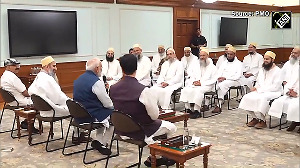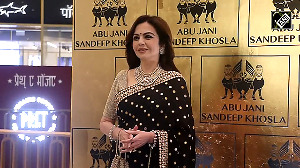 The Prime Minister's Office has decided to refer the proposal of the Telecom Regulatory Authority of India to link the price of 2G spectrum beyond 6.2 MHz with the recently-concluded 3G auction to an empowered group of ministers headed by Finance Minister Pranab Mukherjee.
The Prime Minister's Office has decided to refer the proposal of the Telecom Regulatory Authority of India to link the price of 2G spectrum beyond 6.2 MHz with the recently-concluded 3G auction to an empowered group of ministers headed by Finance Minister Pranab Mukherjee.
The decision had been communicated to the department of telecommunications, a senior official of the department told Business Standard.
The EGoM had been constituted to resolve the battle between DoT and the defence ministry on vacation of 3G spectrum for auction. Communications minister A Raja, among other ministers, is also part of the EGoM.
In May, the regulator had recommended sweeping changes in telecom policy, which included refarming of 900 MHz spectrum (held by companies like Bharti Airtel and Vodafone Essar, among others, for 2G services).
It had also suggested that telcos pay in line with the market rates for spectrum when their licences came for renewal for 10 years from 2014.
Trai's recommendations had been criticised by existing players, like Bharti Airtel, Vodafone Essar and Idea Cellular, who would have to fork out about Rs 20,000 crore (Rs 200 billion) for holding spectrum beyond 6.2 MHz, if the recommendations were accepted.
The linking of 2G spectrum with the 3G auction price had started a debate, as experts and the industry felt 2G prices could not be linked with 3G, as these had different levels of efficiency. According to DoT, 3G is thrice more efficient than 2G and, therefore, the price should be linked accordingly.
The operators contend they would then have to pay over Rs 1,00,000 crore (Rs 1,000 billion) between 2014 and 2021 for spectrum when their licences come for renewal.
They say this is too harsh on their financials.
However, the regulator had said the operators would also save over Rs 48,000 crore (Rs 480 billion) over the next 20 years because Trai had also suggested the percentage of revenue to be shared with the government be reduced from an average of 8.22 per cent to 6 per cent across the country.
The savings, of course, would be more, as they did not consider the increase in revenue the operators would make every year.







 © 2025
© 2025